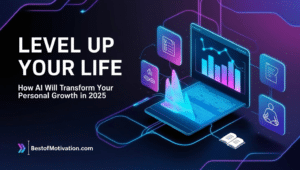In today’s ever-evolving marketing landscape, businesses are moving towards more personalized approaches to reach their target audience. Rather than relying on mass marketing techniques, many are embracing individual marketing methods—tailored strategies that focus on individual customer needs and preferences. These methods allow businesses to engage customers on a deeper, more personal level, increasing customer satisfaction, loyalty, and conversions.
In this guide, we will delve into the key components of individual marketing methods, exploring the techniques, benefits, and strategies that make this approach so effective.

1. Introduction to Individual Marketing
Individual marketing, often referred to as one-to-one marketing, is a strategic approach where businesses customize their marketing efforts to suit the unique preferences, needs, and behaviors of each customer. Unlike traditional marketing methods that target large groups of consumers with a generic message, individual marketing focuses on delivering a personalized experience.
Synonyms for individual marketing methods include:
- Personalized marketing
- One-to-one marketing
- Tailored marketing strategies
- Customer-centric marketing
With the increasing availability of consumer data and advanced technologies like AI and machine learning, individual marketing has become an achievable and impactful strategy for businesses across industries.
2. The Shift from Mass Marketing to Personalized Strategies
Historically, businesses have relied on mass marketing to reach a broad audience. TV commercials, billboards, and newspaper ads were standard tools for marketers. While these techniques helped raise brand awareness, they often failed to connect with individual customers in a meaningful way.
In contrast, personalized marketing builds deeper relationships by delivering relevant messages to the right person at the right time. Today’s customers expect businesses to understand their needs and provide personalized solutions. A study from Salesforce found that 76% of consumers expect companies to understand their needs and expectations.
To meet these demands, businesses are shifting from broad-based, one-size-fits-all marketing campaigns to more tailored and customer-centric approaches. This shift is powered by data analytics, automation, and innovative technology solutions.
3. Key Components of Individual Marketing Methods
To successfully implement individualized marketing methods, businesses need to focus on three main components: data collection, personalized messaging, and targeted offers.
Data Collection and Analysis
Data is the backbone of personalized marketing. To effectively personalize marketing efforts, businesses must collect and analyze customer data, including:
- Demographics: Age, gender, income, etc.
- Behavioral data: How customers interact with the brand, including website visits, past purchases, and browsing habits.
- Psychographic data: Preferences, lifestyle, values, and opinions.
The analysis of this data allows businesses to create a detailed customer profile, enabling them to craft more relevant and engaging marketing messages.
Personalized Messaging
Once a business has detailed customer data, the next step is to craft personalized messages that resonate with individual customers. Personalized messages can be delivered through multiple channels, including:
- Email campaigns
- Social media ads
- SMS and push notifications
- In-app messages
Each message should address the specific needs, desires, or pain points of the customer. For example, using a customer’s first name in an email or offering a discount on a product they’ve recently viewed online can increase engagement.
Targeted Offers
Personalized marketing often involves delivering targeted offers based on customer preferences or behavior. This could include offering discounts, promotions, or product recommendations that align with an individual’s interests. Businesses like Amazon and Netflix use personalized recommendations to enhance user experience and boost conversions.
4. Types of Individual Marketing Techniques
Let’s explore some of the most effective individual marketing techniques that businesses are using today:
Personalized Email Marketing
Email marketing remains one of the most powerful tools for personalized marketing. By segmenting email lists based on customer data, businesses can send highly relevant content and offers to their audience. For example:
- A fashion retailer might send product recommendations based on a customer’s past purchases.
- A travel agency could promote vacation packages tailored to a customer’s preferences.
Targeted Social Media Advertising
Social media platforms like Facebook and Instagram offer advanced targeting features that allow businesses to reach specific customers based on demographics, interests, and behaviors. By using these tools, businesses can create highly targeted ads that appeal to individual customers.
For example, a sportswear brand could show ads featuring running shoes to a customer who has shown an interest in fitness and running gear.
Content Customization
Customizing the content on websites and apps is another way to implement individualized marketing methods. By analyzing user behavior, businesses can display personalized content such as:
- Product recommendations
- Tailored blog posts
- Customized landing pages
This approach helps keep customers engaged and increases the likelihood of conversions.
Direct Mail Campaigns
While digital marketing is on the rise, direct mail campaigns are still a valuable tool for personalized marketing. Sending a customer a physical piece of mail, such as a catalog or promotional offer, with their name and tailored product recommendations can make a lasting impression.
Loyalty Programs
Loyalty programs that offer personalized rewards based on a customer’s past purchases and behavior are highly effective. These programs incentivize repeat purchases and encourage customer loyalty.
A great example is Starbucks. Their loyalty app tracks each customer’s purchases and offers personalized deals and rewards, driving both engagement and sales.
5. The Role of Technology in Personalization
Technology plays a crucial role in making individualized marketing methods possible. From AI-driven personalization to advanced data analytics, these tools enable businesses to gather insights and deliver tailored experiences at scale.
Artificial Intelligence (AI) and Machine Learning
AI and machine learning algorithms can analyze vast amounts of customer data to predict behaviors, preferences, and future needs. This allows businesses to automate and optimize their marketing efforts. For example, Spotify uses AI to recommend music playlists based on individual listening habits.
Customer Relationship Management (CRM) Systems
CRM systems allow businesses to manage customer data, track interactions, and personalize communications. With the help of CRMs, businesses can keep detailed records of customer preferences, ensuring that every interaction is relevant and personalized.
Predictive Analytics
Predictive analytics enables businesses to anticipate customer needs and behaviors. By analyzing past data, businesses can predict which products or services a customer is likely to be interested in, allowing them to send personalized recommendations at the right time.
6. Advantages of Adopting Individual Marketing Approaches
There are several advantages to adopting personalized marketing strategies:
Higher Customer Engagement
Customers are more likely to engage with personalized content that speaks directly to their needs. Whether it’s a personalized email or a custom-tailored advertisement, individual marketing helps capture and maintain customer attention.
Increased Conversion Rates
When customers receive relevant and timely offers, they are more likely to take action. By personalizing the customer journey, businesses can significantly increase their conversion rates.
Better Customer Retention
Personalization leads to higher customer satisfaction, which in turn promotes loyalty. By offering a personalized experience, businesses can retain customers over the long term and encourage repeat purchases.
7. Challenges and Solutions in Implementing Personalized Marketing
Despite its many benefits, implementing individual marketing methods can pose certain challenges:
Data Privacy and Compliance
With the increasing focus on data privacy, businesses must ensure they are compliant with regulations like the General Data Protection Regulation (GDPR) and the California Consumer Privacy Act (CCPA). Transparency in data collection and offering customers control over their data is crucial to building trust.
For further information on GDPR, you can visit this official website.
Cost and Resource Allocation
Personalized marketing campaigns often require significant investments in technology and data management. Small businesses with limited resources may find it challenging to implement such strategies at scale. However, leveraging affordable marketing tools and platforms designed for small businesses can help overcome these barriers.
8. Best Practices for Successful Individual Marketing Campaigns
To ensure the success of your one-to-one marketing efforts, consider the following best practices:
- Start small: Begin with basic personalization techniques, such as segmenting your email list or creating targeted social media ads, and gradually expand your efforts.
- Leverage automation: Use marketing automation tools to streamline the process of sending personalized messages and offers.
- Test and optimize: Continuously test your personalized marketing campaigns to identify what works and refine your approach.
- Maintain transparency: Always be transparent about how you collect and use customer data, and offer customers the ability to opt out if they choose.
9. Conclusion
In an era where customers expect businesses to understand their needs, individual marketing methods have become essential. By leveraging data, technology, and personalized communication, businesses can create meaningful connections with their customers, ultimately driving higher engagement, conversion, and loyalty.
While implementing personalized marketing can present challenges, the long-term benefits far outweigh the initial costs. As businesses continue to prioritize customer-centric strategies, personalized marketing will undoubtedly remain a key component of successful marketing efforts.
By focusing on delivering value through tailored experiences, businesses can set themselves apart in a competitive marketplace and achieve lasting success.











